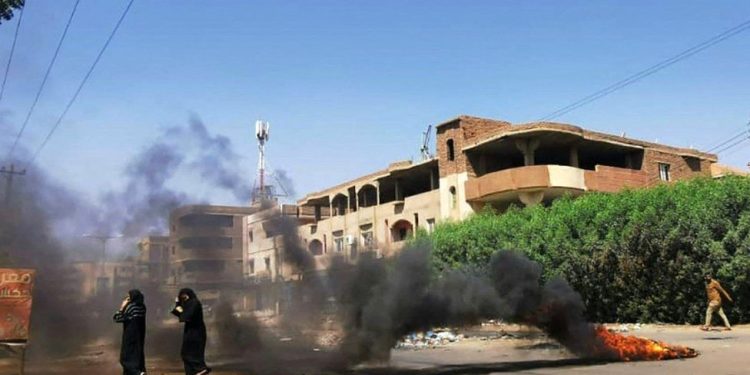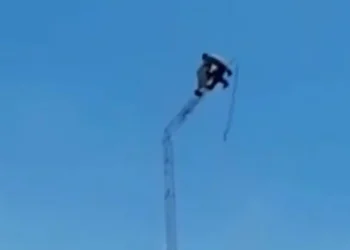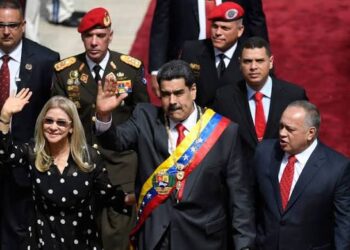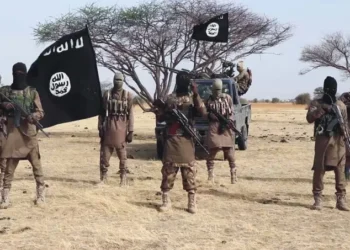Sudanese security forces have fired tear gas at dozens of teachers who were taking part in pro-democracy protests in the capital, Khartoum.
There are reports that many teachers were detained by the security forces.
Overnight demonstrators set up barricades for the first of two days of planned civil disobedience to protest against last month’s coup.
They are demanding the military government step back and allow a peaceful transition to civilian rule.
The demonstrations are happening as Arab League mediators arrive in Khartoum for talks to try to defuse the crisis.
The civilian Prime Minister, Abdalla Hamdok, remains under house arrest and is facing pressure from the military to co-operate with them, the BBC’s Andrew Harding reports from the capital.
Last month, the coup leader, Gen Abdel Fattah al-Burhan, dissolved the civilian arm of the government’s power-sharing agreement, arrested civilian leaders and declared a state of emergency.
Disruptions to the internet had left some people unaware of the two-day civil disobedience action but teachers turned out to protest near the education ministry.
“We organised a silent stand against the decisions by Burhan outside the ministry of education,” Mohamed al-Amin, a geography teacher, told AFP news agency.
“Police later came and fired tear gas at us though we were simply standing on the streets and carrying banners.”
In Khartoum North, security forces patrolled major streets carrying sticks and tear gas grenades, Reuters added.
What’s the background to the coup?
Military and civilian leaders have been sharing power since August 2019 after Sudan’s long-term authoritarian President Omar al-Bashir was overthrown.
Bashir was toppled by the military but mass street demonstrations demanding civilian rule forced the military to negotiate a plan aimed at moving to a democratic government.
The country is now supposed to be in that transition, with civilians and military leaders running the country together on a joint committee known as the Sovereign Council.
But the two groups have been publicly at odds.
What’s behind the tension?
Military leaders in the transitional government have demanded reforms from their civilian counterparts and called for the cabinet to be replaced. This was dismissed as a power grab by civilian leaders.
There have been several failed coups since 2019, the most recent of them just last month.
The top civilian figure, Prime Minister Abdallah Hamdok, blamed Bashir loyalists – many of whom are said to be embedded in the military, security services and other state institutions.
And recent weeks saw pro-army demonstrators bussed into the capital Khartoum, as well as large spontaneous counter-protests backing the prime minister.
The pro-military protesters accused the government of failing to revive the country’s fortunes.
Mr Hamdok’s moves to reform the economy – including slashing fuel subsidies – have been unpopular with some.
Sudan’s political frailty has a long precedent.
In previous decades the splintering of political parties and their inability to build consensus has time and again paved the way for the military to step in, mounting coups under the pretext of restoring order – as regional analyst Magdi Abdelhadi writes.
Today in Sudan, there are at least 80 political parties.
This same factionalism plagued the Sovereign Council, where internal divisions among both the military and civilian camps pushed political consensus yet further out of reach.










Discussion about this post